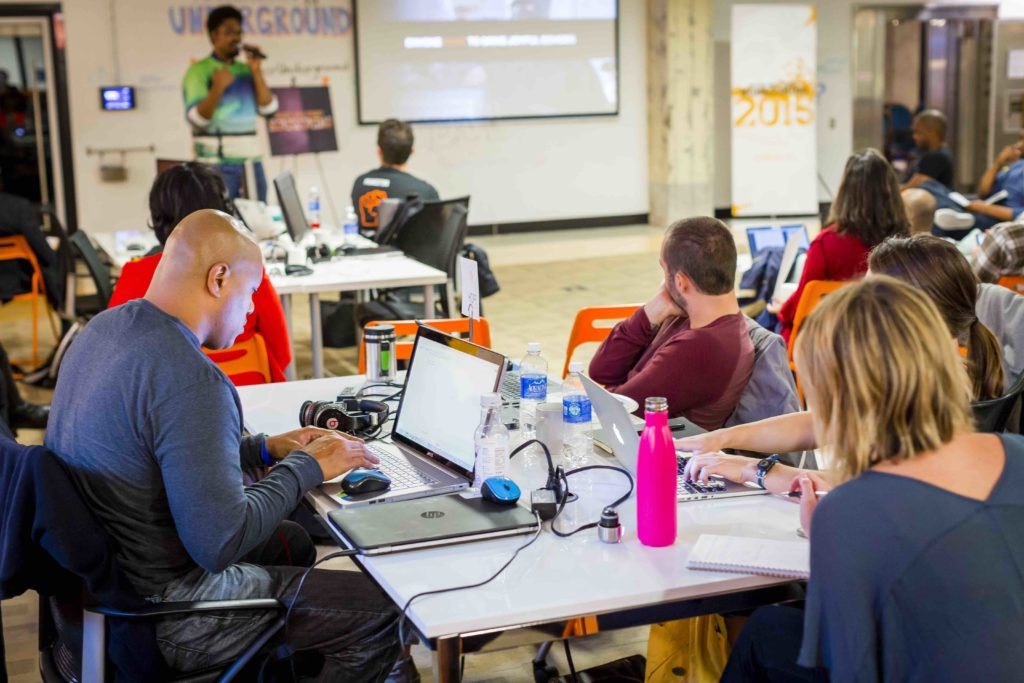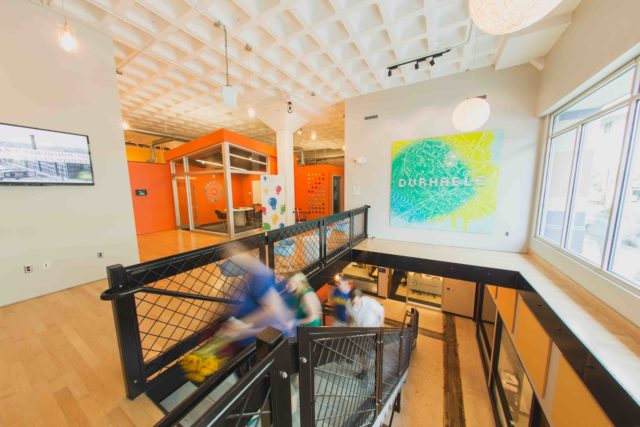Of course, entrepreneurs tend to be mavericks, so bucking hierarchy is nothing new. Still, the ideas and initiatives afoot are not only heartening but instructive — and the more we share, the more progress we’ll all make.
Case in point: Technical.ly recently reported on the intent of the D.C. mayoral administration to significantly increase the diversity and inclusivity of its startup scene, including three ambitious and measurable goals. As the chief strategist at Durham, N.C.’s American Underground startup hub, this caught my eye because we, too, believe diverse teams make for better outcomes and have made great strides toward that end.
In fact, our inclusivity initiatives figure prominently into a new case study on the American Underground by Thriving Cities, a research arm of the Institute for Advanced Studies in Culture at the University of Virginia. The first in a series on startup scenes, the case study looks at the American Underground through the lens of a human ecology framework, a holistic model for understanding civic thriving. You can download the entire case study here.

At American Underground, 29 percent of businesses are led by women and 22.4 percent are led by minorities — higher than the national average. (Courtesy photo)
In Durham, we’ll study what D.C. is looking to do, and we hope the mayor’s office there and other hubs will examine our Thriving Cities case study to perhaps adopt and remix some of what we’ve been up to.
For example, 29 percent of the American Underground’s businesses are led by women and 22.4 percent are led by minorities. Nationally, approximately only one percent of startup founders are Black and eight percent are female (according to CB Insights). On those counts, we’re doing well addressing challenges that bedevil Silicon Valley — but we’re looking for ideas on how to reach and nurture Latinx founders. Hopefully, a hub out there is pioneering best practices that we can remix for our needs and put to use.
This idea-swapping approach defies the competitive approach of certain economic developers who tend to think primarily about advancing a particular city or state. Those folks do important work, but collaboration and collisions are the stuff of not only great startups, but, I think, great startup hubs. That’s one of the lessons we’ve learned from being in the national constellation of Google for Entrepreneurs Tech Hubs as well as a stop on Steve Case’s Rise of the Rest tours. (One startup that we incubated, Archive Social, won Case’s 2015 Raleigh-Durham Rise of the Rest pitch competition, and a number of startups we’ve incubated, like Automated Insights, Mati Energy and Windsor Circle, have won Google Demo Days.) The camaraderie of those networks is wonderful, and, happily, available as well through informal relationships.
The American Underground’s 2016 annual report is available for download here. If something grabs your attention, I’d love to talk about it, trade ideas and perhaps, with your input, accomplish even more. This month, applications open for our inaugural “Consumer Product Stampede” designed to bring together and offer guidance to startups from around the country focused on developing consumer products. Exchanging teams is another way to cross pollinate good ideas.
As has been said of each state’s educational system, every startup hub in America is, or can be, a laboratory. The Great American Startup Hub Remix is on!
Join our growing Slack community
Join 5,000 tech professionals and entrepreneurs in our community Slack today!
Donate to the Journalism Fund
Your support powers our independent journalism. Unlike most business-media outlets, we don’t have a paywall. Instead, we count on your personal and organizational contributions.

Mayor Bowser: Tech can help DC build a stronger, more self-sufficient economy

Comcast introduces ultra-low lag Xfinity internet that boosts experiences with Meta, NVIDIA and Valve

Maryland firms score $5M to manufacture everything from soup to nanofiber

